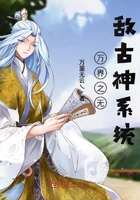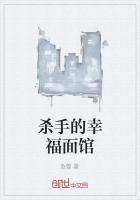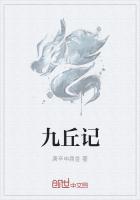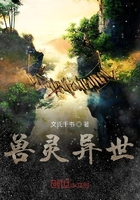Charles and Hal wrangled whenever Mercedes gave them a chance.It was the cherished belief of each that he did more than his share of the work, and neither forbore to speak this belief at every opportunity.Sometimes Mercedes sided with her husband, sometimes with her brother.The result was a beautiful and unending family quarrel.Starting from a dispute as to which should chop a few sticks for the fire (a dispute which concerned only Charles and Hal), presently would be lugged in the rest of the family, fathers, mothers, uncles, cousins, people thousands of miles away, and some of them dead.That Hal's views on art, or the sort of society plays his mother's brother wrote, should have anything to do with the chopping of a few sticks of firewood, passes comprehension; nevertheless the quarrel was as likely to tend in that direction as in the direction of Charles's political prejudices.And that Charles's sister's tale-bearing tongue should be relevant to the building of a Yukon fire, was apparent only to Mercedes, who disburdened herself of copious opinions upon that topic, and incidentally upon a few other traits unpleasantly peculiar to her husband's family.In the meantime the fire remained unbuilt, the camp half pitched, and the dogs unfed.
Mercedes nursed a special grievance--the grievance of ***.She was pretty and soft, and had been chivalrously treated all her days.But the present treatment by her husband and brother was everything saveconsidered the dogs, and because she was sore and tired, she persisted in riding on the sled.She was pretty and soft, but she weighed one hundred and twenty pounds--a lusty last straw to the load dragged by the weak and starving animals.She rode for days, till they fell in the traces and the sled stood still.Charles and Hal begged her to get off and walk, pleaded with her, entreated, the while she wept and importuned Heaven with a recital of their brutality.
On one occasion they took her off the sled by main strength.They never did it again.She let her legs go limp like a spoiled child, and sat down on the trail.They went on their way, but she did not move.After they had travelled three miles they unloaded the sled, came back for her, and by main strength put her on the sled again.
In the excess of their own misery they were callous to the suffering of their animals.Hal's theory, which he practised on others, was that one must get hardened.He had started out preaching it to his sister and brother-in-law.Failing there, he hammered it into the dogs with a club.At the Five Fingers the dog-food gave out, and a toothless old squaw offered to trade them a few pounds of frozen horse-hide for the Colt's revolver that kept the big hunting-knife company at Hal's hip.A poor substitute for food was this hide, just as it had been stripped from the starved horses of the cattlemen six months back.In its frozen state it was more like strips of galvanized iron, and when a dog wrestled it into his stomach it thawed into thin and innutritious leathery strings and into a mass of short hair, irritating and indigestible.
And through it all Buck staggered along at the head of the team as in a nightmare.He pulled when he could; when he could no longer pull, he fell down and remained down till blows from whip or club drove him to his feet again.All the stiffness and gloss had gone out of his beautiful furry coat.The hair hung down, limp and draggled, or matted with dried blood where Hal's club had bruised him.His muscles had wasted away to knotty strings, and the flesh pads had disappeared, so that each rib and every bone in his frame were outlined cleanly through the loose hide that was wrinkled in folds of emptiness.It was heartbreaking, only Buck's heart was unbreakable.The man in the red sweater had proved that.
As it was with Buck, so was it with his mates.They were perambulating skeletons.There were seven all together, including him.In their very great misery they had become insensible to the bite of the lash or the bruise of the club.The pain of the beating was dull and distant, just as the things their eyes saw and their ears heard seemed dull and distant.They were not half living, or quarter living.They were simply so many bags of bones in which sparks of life fluttered faintly.When a halt was made, they dropped down in the traces like dead dogs, and the spark dimmed and paled and seemed to go out.And when the club or whip fell upon them, the spark fluttered feebly up, and they tottered to their feet and staggered on.
There came a day when Billee, the good-natured, fell and could not rise.Hal had traded off his revolver, so he took the axe and knocked Billee on the head as he lay in the traces, then cut the carcass out of the harness and dragged it to one side.Buck saw, and his mates saw, and they knew that this thing was very close to them.On the next day Koona went, and but five of them remained: Joe, too far gone to be malignant; Pike, crippled and limping, only half conscious and not conscious enough longer to malinger; Sol-leks, the one-eyed, still faithful to the toil of trace and trail, and mournful in that he had so little strength with which to pull; Teek, who had not travelled so far that winter and who was now beaten more than the others because he was fresher; and Buck, still at the head of the team, but no longer enforcing discipline or striving to enforce it, blind with weakness half the time and keeping the trail by the loom of it and by the dim feel of his feet.


